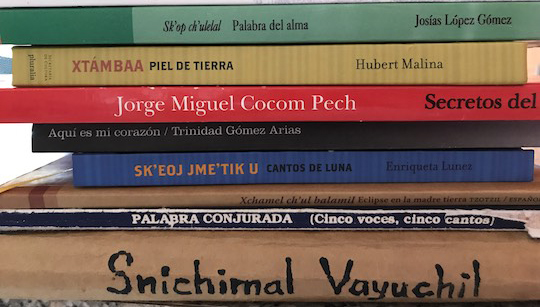We are in the thick of the World Cup, but that does not mean that everything else stops! We are back with the latest literary updates from around the world. MARGENTO reports from Bookfest Bucharest on the latest of Romanian publishing and Romanian-US connections that emerged during the festival. Paul Worley and Kelsey Woodburn discuss the latest publications from the Yucatan Peninsula, focusing on indigenous writers. Finally, Theophilus Kwek tells us about recent news in the Singaporean literary world. Happy reading!
MARGENTO, Editor-at-Large, reporting from Romania:
Bookfest Bucharest is one of the largest international book festivals in Europe, growing larger and larger by the year. This year it featured over 150 publishers. Although expanding, the festival seemed less loud this time for a quite mundane reason: the organizers placed the beer patios further away from the pavilions than they did in the past. The atmospherics and the events felt really animated, though, and sometimes even intense. The guest of honor was the United States, with a centrally placed and welcoming space hosting four to six events every day. One of the most popular panels was chaired by the ambassador himself—HE Hans Klemm—on the life and work of Romanian-born American critic and fiction writer Matei Călinescu (and the dedicated Humanitas series).


